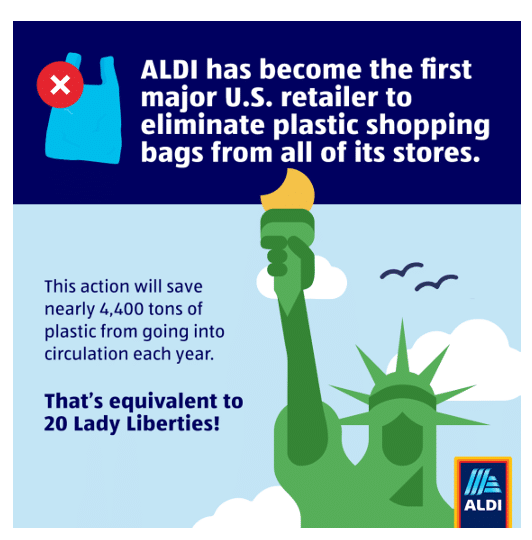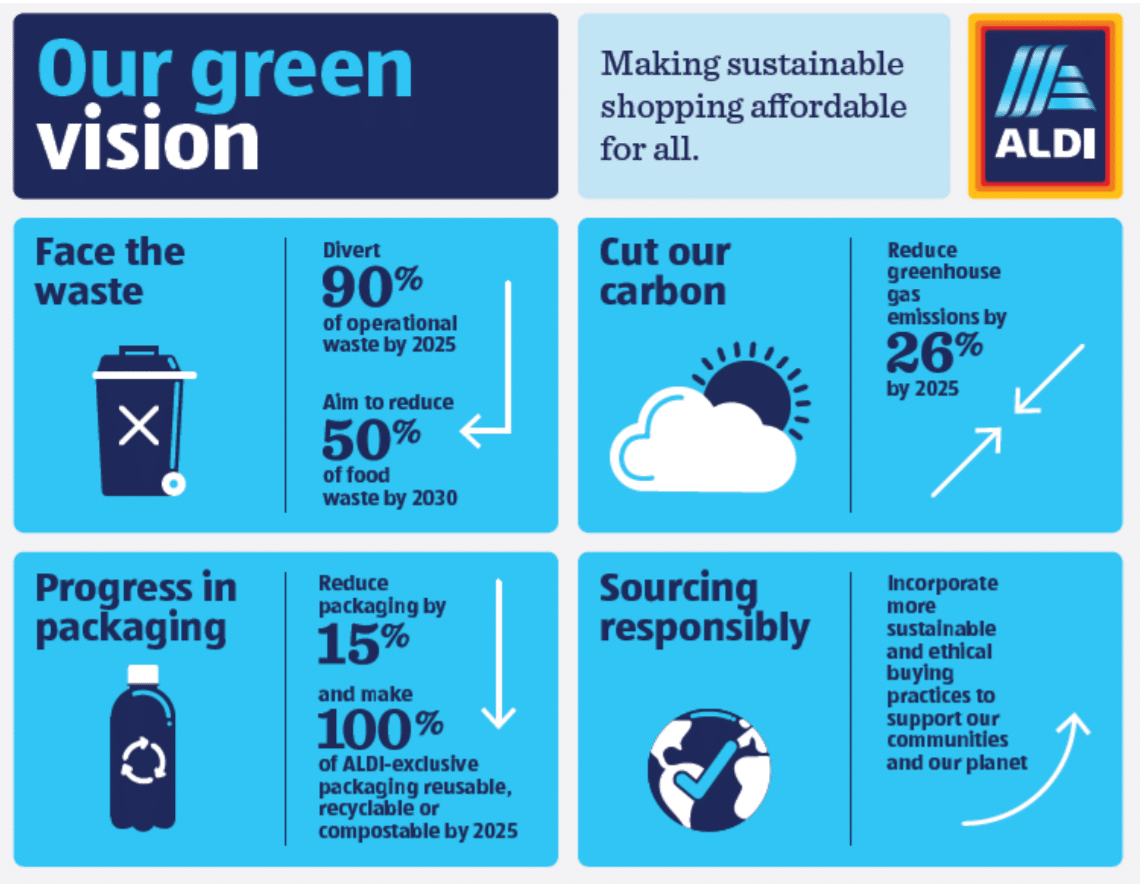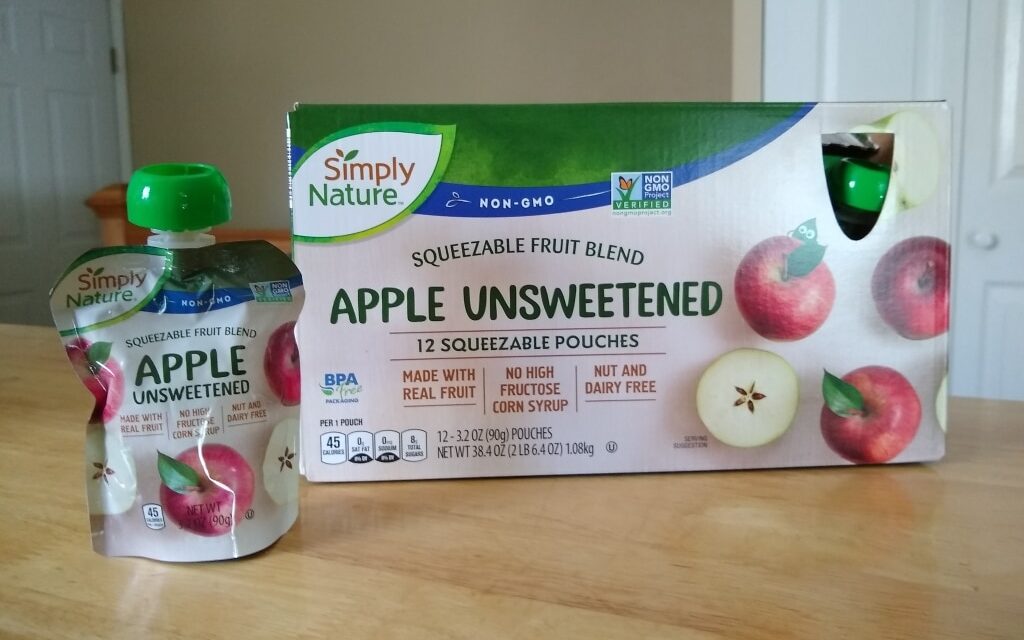
I read a claim recently on social media that Aldi in the U.S. plans to have 100% of its packaging be recyclable, reusable, or compostable by 2025. Being skeptical of some things I read online, especially if they sound too good to be true, I did some research to find out whether the claim is accurate.
It turns out, it is true.
In April of 2019, Aldi published a press release that states:
- By 2025, 100 percent of Aldi packaging, including plastic packaging, will be reusable, recyclable, or compostable.
- Aldi will reduce packaging material across its entire range by at least 15 percent.
- By 2020, 100 percent of Aldi-exclusive consumable packaging will include a How2Recycle label.
- By 2020, Aldi will implement an initiative to make private-label product packaging easier for customers to reuse.
Aldi states it hopes these efforts will help to combat the global plastics crisis. The press release states Aldi is able to influence how its products are sourced, produced, and placed on shelves because more than 90% of its inventory is composed of private label, Aldi-exclusive products. Aldi says it is committed to working with its network of suppliers to achieve these goals.
“ALDI has never offered single-use plastic shopping bags. And while we’re pleased that we’ve helped keep billions of plastic grocery bags out of landfills and oceans, we want to continue to do more,” said Jason Hart, CEO of ALDI U.S. “The commitments we’re making to reduce plastic packaging waste are an investment in our collective future that we are proud to make.”
The press release states that Aldi has been promoting sustainability for more than forty years because of its decision to never give away single-use plastic grocery bags, encouraging shoppers to bring their own reusable bags. Aldi estimates this has helped to deter about 15 billion single-use plastic bags from landfills and oceans.
In addition, Aldi’s website states it plans to source all fiber-based primary packaging components (cereal, flour, pasta, facial tissues, etc.) from certified responsibly managed forests or recycled content for its core range products by the end of 2020.
Aldi is a member of the Sustainable Packaging Coalition, and the new packaging goals are part of the larger Aldi Corporate Responsibility program, which seeks to reduce food waste, support natural disaster relief efforts through employee volunteering and donations, and assist communities through a partnership with Feeding America.
As for us here at Aldi Reviewer, we’re intrigued to see how Aldi will carry off this new goal, especially considering how much single-use plastic film is a part of packaging in products across all major grocery store chains at this point. We’d love to see that improve, and it looks like Aldi will help to lead the way.





I just discovered this website and love it. Their plastic claim really bothers me as I find more and more of their own items switching to those darn stiff plastic zipper bags (granola for example). They are NOT recyclable. What are they going to claim they’re reusable? And the deal with compostable packaging is that you have to have a commercial compost facility available to actually compost it. How likely is that for the average Aldi shopper? I’m just venting really as I find it to be a bit of greenwashing.
Thanks for this website!
Welcome to the site! Also, I’ve been composting in my small back yard for years, and it’s easy and does not smell or attract wildlife. If you’re interested, I’ve got a post about how to make compost here: https://www.awelladvisedlife.com/how-to-make-your-own-compost/
I compost as well, but thanks. My point was that plastic “compostable” packaging will not work in backyard composting. I find it to be a bit of greenwashing for corporations to claim “compostable” packaging.
Oh, yes, I’ve seen some plastic-type products at other places (such as plastic “compostable” disposable spoons and forks in a cafe at a science museum I recently visited) and wondered how well they really break down.